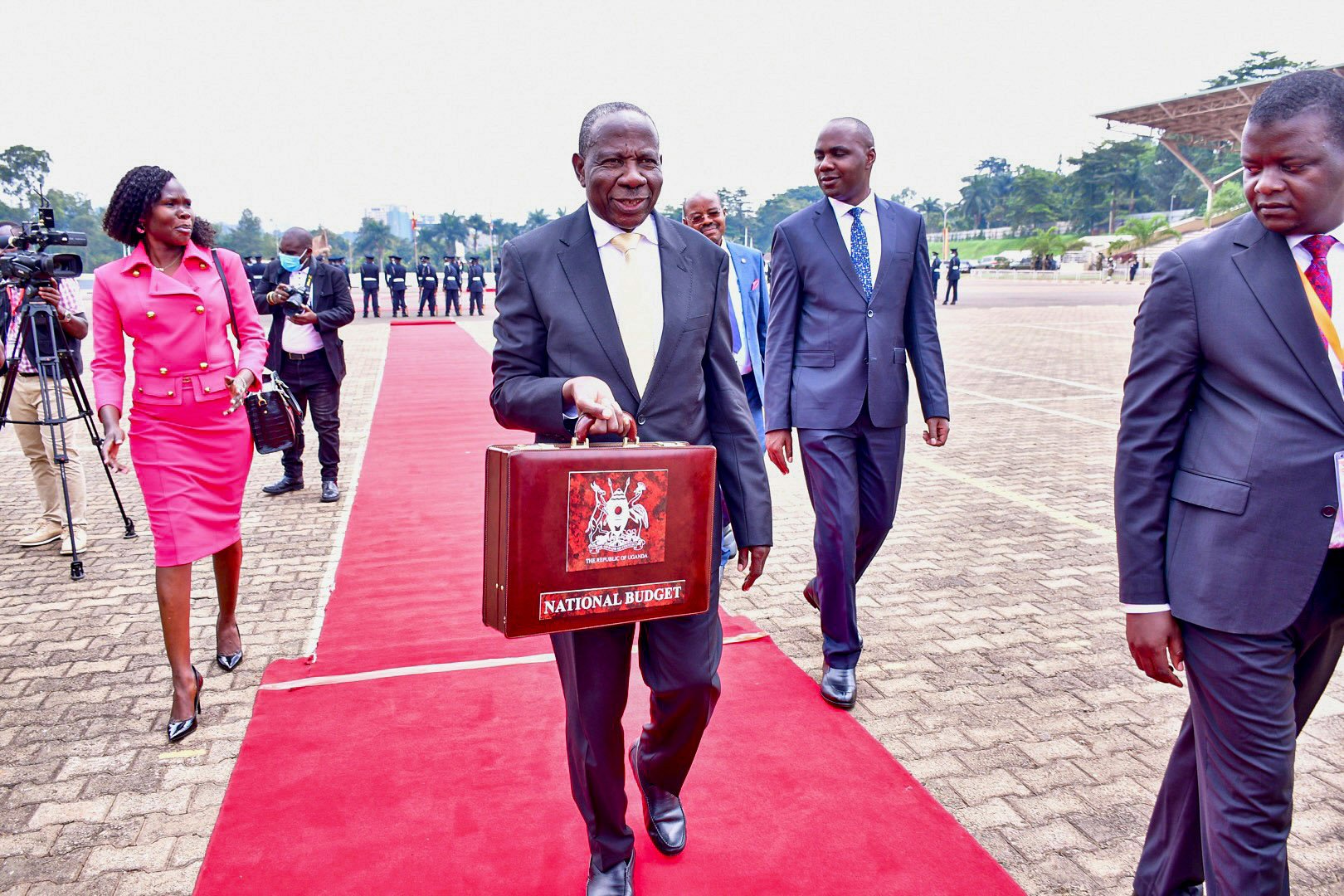Prime
Kasaija's budget: Winners and losers

Finance Minister Matia Kasaija presents during budget reading on June 15, 2023. PHOTO/ DAVID LUBOWA
What you need to know:
- Each district, city or municipality is to get Shs I billion for road maintenance while Kampala metropolitan, where roads are broken and flooding overwhelming, has been allocated Shs2.25 trillion to fix drainage and traffic congestion as well as upgrading road infrastructure and un-signalised junctions.
Like in the past, the new budget offers reliefs to different actors in the economy by pumping money or proclaiming tax breaks in some sectors while imposing punishing taxes on others.
For instance, Shs209.3 billion has been allocated for Small and Medium Enterprises under the World Bank Investment for Industrial to increase Ugandan manufactured export products.
This is expected to generate 200,000 direct and indirect jobs and safeguard existing jobs for 530,000 workers.
Each district, city or municipality is to get Shs I billion for road maintenance while Kampala metropolitan, where roads are broken and flooding overwhelming, has been allocated Shs2.25 trillion to fix drainage and traffic congestion as well as upgrading road infrastructure and un-signalised junctions.
The government pledged to provide Shs 22.6 billion to clear outstanding arrears for medical interns and senior house officers for the financial year ending this month.
Finance Minister Matia Kasaija, in an apparent echo of PS Ramathan Ggoobi’s public proclamations, yesterday disclosed that the government has taken a deliberate policy to reduce domestic borrowing in order not to crowd out local entrepreneurs when commercial bank lraise interest rates.
Finance hopes to offset revenue lost in reduced borrowing with higher tax collections by URA, which by last month had collected Shs21.7 trillion out of Shs25.7 trillion target for this financial year that ends in two weeks.
The target for the tax collector in the new financial year is Shs 29.7 trillion.
URA Commissioner General, Mr John Musinguzi, reported improved collections and plans to jump tax-Gross Domestic Product ration from the current 13 to 18 percent.
“The collection of revenue is still very low. Thirteen percent of the GDP is very low. The only solution is to expand the tax register,” he said, “We have been using data to expand our register and that is why we have moved from 1.7 million tax payers in 2020 to about 3.2 million…”
Minister Kasaija outlined a number of austerity measures in the new budget, freezing acquisition of new vehicles for political leaders and public officers and restricting travel abroad, where government officials get substantial allowances, and applying brakes on creation of new administrative units.
The delayed rationalisation of government agencies, which the Public Service ministry estimates will save Shs1 trillion annually, will kick to life in the new financial year, the minister said.




